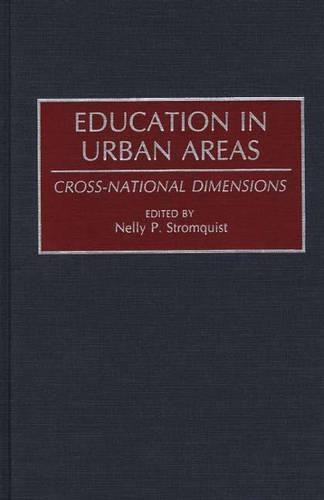
Education in Urban Areas: Cross-National Dimensions
(Hardback)
Publishing Details
Education in Urban Areas: Cross-National Dimensions
By (Author) Nelly P Stromquist
Bloomsbury Publishing PLC
Praeger Publishers Inc
30th December 1993
United States
Classifications
Tertiary Education
Non Fiction
Urban communities / city life
Development studies
370.19
Physical Properties
Hardback
288
Description
Dimensions peculiar to urban life, such as high population density, proximity to power centers, heterogeneity of residents in terms of class and ethnicity, susceptibility to political action, and tensions between rich and poor, have considerable impact on educational policies. Important studies have been conducted on urban conditions in the developed world, but few studies on education in Third World cities have appeared. This volume looks at urban problems related to education cross-nationally, beginning with a careful definition of what is distinctly urban in educational settings. Chapters on trends and issues, bureaucratic dynamics, disparities and inequities, goals, neighborhood movements, politics, and the experience of women and marginal students round out this internationally contributed volume.
Reviews
Most discussions of urban education look only at industrialized countries. The papers in this provocative volume juxtapose studies from both the developed and the developing world, thus affirming heretofore unexplored parallels between the two. Highly recommended for researchers and faculty in education, educational policy and political science.-Choice
"Most discussions of urban education look only at industrialized countries. The papers in this provocative volume juxtapose studies from both the developed and the developing world, thus affirming heretofore unexplored parallels between the two. Highly recommended for researchers and faculty in education, educational policy and political science."-Choice
Author Bio
NELLY P. STROMQUIST is Professor of International Development Education at the University of Southern California in Los Angeles. Her most recent publications are Women and Education in Latin America: Knowledge, Power, and Change (1992) and Daring to Be Different: The Choice of Nonconventional Fields of Study by International Women (1991).
